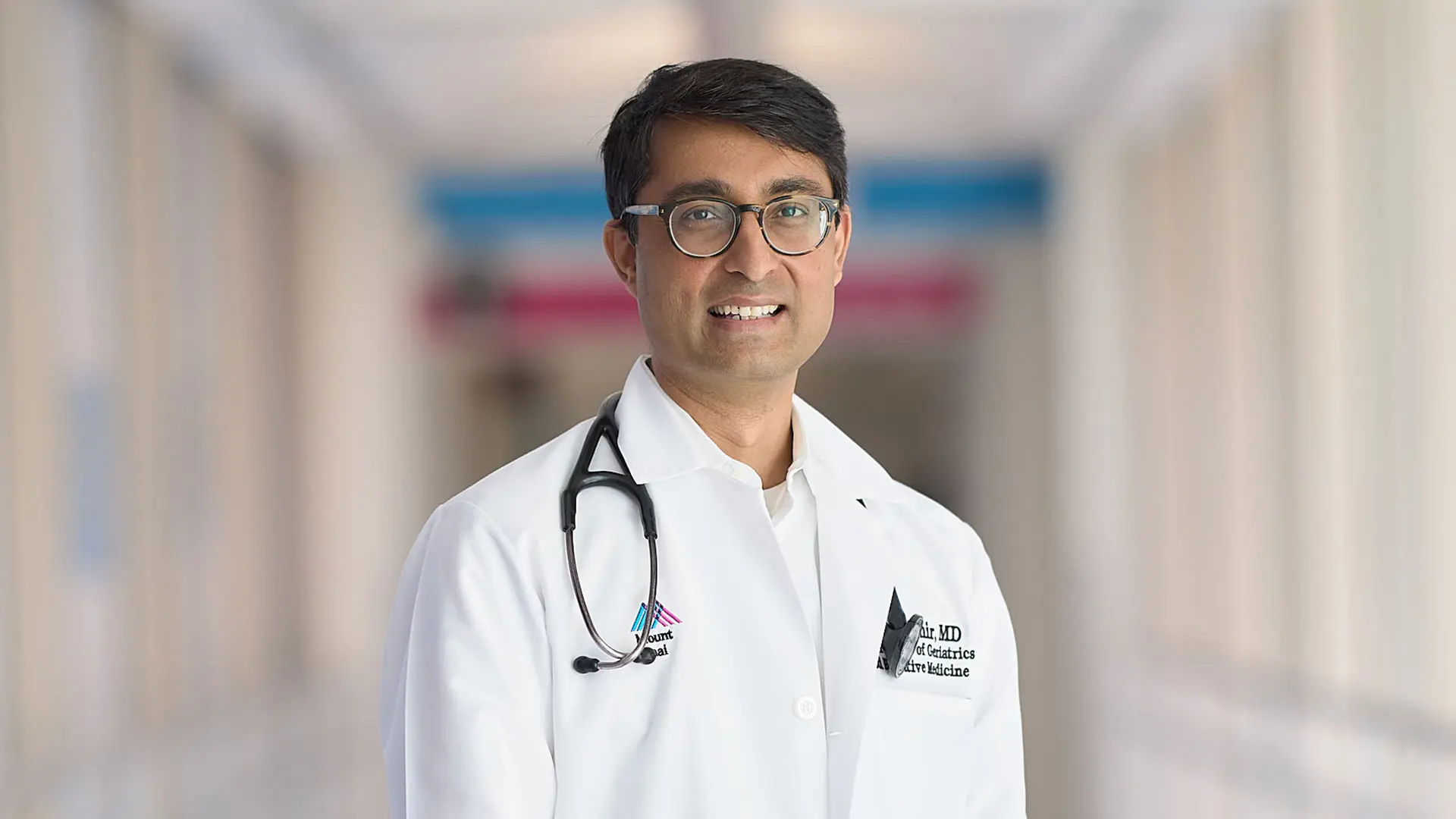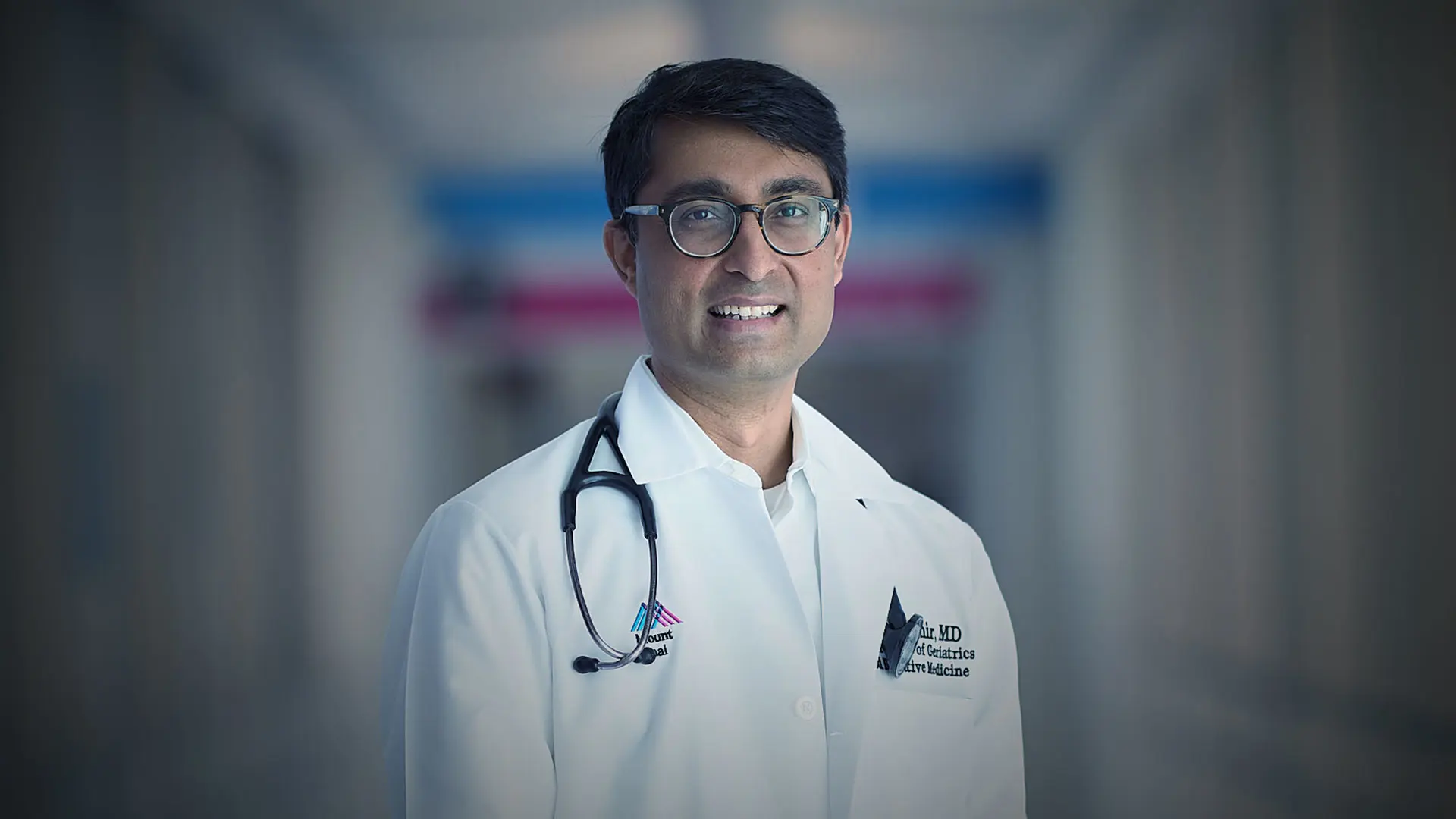For the past five years, Mount Sinai Morningside has proudly worn its coveted designation from the Institute for Healthcare Improvement (IHI) as an Age-Friendly Health System, equipping its Acute Care Unit for older adult patients with the broadest set of clinical practices and programs anywhere. Indeed, each fits comfortably within the Institute’s framework of so-called “4Ms”—What Matters, Medications, Mentation, and Mobility—which translates into evidence-based interventions for older adults.
The success and sustainability of that initiative led in March to receipt of a new recognition from IHI as an “Age-Friendly Collaborative.” This next-step status gives the geriatrics program a pathway to scale up, strengthen, and spread its model throughout the Mount Sinai Health System, particularly at Mount Sinai West. The designation will also allow the program’s leaders to become part of the Institute’s networking program to bring age-friendly sites and their teams across the country together to share ideas, best practices, and implementation experiences.
“As geriatricians, we have the ability to look at the patient as a whole person rather than someone with particular medical problems, and the 4M framework has given us an effective way to operationalize a very comprehensive and advanced level of practice,” says Omar Amir, MD, MS, Assistant Professor, Brookdale Department of Geriatrics and Palliative Medicine, at the Icahn School of Medicine at Mount Sinai, and Medical Director of the Age-Friendly Acute Care Unit at Mount Sinai Morningside. “Our IHI recognition has not only been a source of pride, but of motivation to continue to develop our program in new areas such as more robust performance metrics.”

Omar Amir, MD, MS, Assistant Professor, Brookdale Department of Geriatrics and Palliative Medicine
For the last 30 years, the Institute has recognized hospitals and clinical care settings across the United States that are closely aligned with its mission to bring better outcomes, safety, and quality of care to millions of older adults. Mount Sinai has continually earned the organization’s highest Level 2 designation by presenting data showing its “commitment to care excellence” for its patients.
Among the practices in place at the 30-bed Acute Care Unit is intense geriatric training of the nursing staff. Each member must take online training and become certified in a program developed by New York University known as Nurses Improving Care for Healthsystem Elders (NICHE). Its protocols include recognizing delirium and implementing non-pharmacological approaches to managing the condition; understanding the importance and mechanics of mobilizing older patients; and knowing what medications are safe and which are not for specific types of patients.
Another practice that targets the mobility part of the 4M equation is the development and training of a special team of mobility aides. Two such aides are available on the unit to help nurses and physical therapists with safe mobilization of patients, a task they don’t often have time to perform on their own. “Given the risks for older patients who lie in bed for most of the day to become deconditioned, we try to mobilize them as early and as often as we can,” says Dr. Amir.
A special delirium team headed up by a nurse practitioner from the Department of Neurology at the Icahn School of Medicine at Mount Sinai is also a pivotal part of the Acute Care Unit. At the center of its work is proactively screening patients for cognitive decline and feeding the results into the hospital’s Epic system, which in turn uses a set of clinical variables to predict the risk of delirium. As often happens, that risk is high in newly admitted patients, which triggers a consult with a clinical team on how to best manage each individual.
To maintain rigorous practice standards, the age-friendly unit has developed an educational component for providers that is led by its four attending geriatricians, including Dr. Amir. On the receiving end of this training are residents and interns from the Department of Medicine as part of their geriatrics rotation. A geriatrics fellow also supports the teaching of students and clinical care of patients on the unit.
“Our ongoing commitment to care excellence means that our providers know how to conduct a comprehensive geriatric assessment for every patient admitted to our unit,” says Dr. Amir. “It’s another way in which we stay focused on improving patient safety and outcomes through the 4M principles—principles which we believe are the core health issues for older adults today.”
